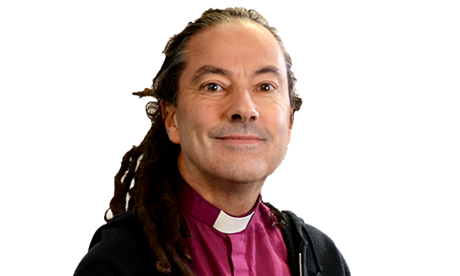Sitting at Turangawaewae at Kiingi Tūheitia’s tangi last week, I found myself reflecting on growing up in Stokes Valley.
It’s probably fair to say that as a teenager my actions were sometimes sub-optimal.
One incident in particular came to mind from my college days, when I’d made an inappropriate comment to a fellow student who was Māori.
Before I knew it, our groups of respective mates were in a stand-off.
After a bit of back and forth, things started to get ugly, and I distinctly remember turning around expecting to see my mates in support – only to discover they had legged it.
But the other guy’s crew? They were backing him up all the way.
This memory probably cropped up as I had the privilege of hearing speaker after speaker at Turangawaewae delivering the most amazing kōrero – and unlike my teenage experience, were always backed up by their support crew, who were ready to tautoko with waiata (and sometimes even jump in early when they felt someone had gone on too long).
I felt a strong sense of people moving collectively, and it was such a testament to Kiingi Tūheitia’s call this year for kotahitanga.
The Bible uses the metaphor of different parts of the same body to describe individuals in relationship together.
Whether hand, foot or eyeball, each part is valued and important and has a unique role.
There’s a sense of kotahitanga and radical equality.
We read of these distinctions broken down in the book called Galatians:
“There is neither Jew nor Greek, neither slave nor free, nor is there male and female, for you are all one in Christ Jesus.”
You’d be forgiven, then, for thinking that an open letter by more than 400 Christian leaders calling on the Government to stop the Treaty Principles Bill progressing to select committee falls short of the Christian message of unity.
Surely Christians would share in ACT and NZ First’s declaration that each of us should be treated the same?
In response to the letter, ACT leader David Seymour wrote of his admiration of the “core Christian principle of imago dei” – every human made in the image of God – which, he states, automatically means that everyone has equal dignity.
It’s an idea, he says, that is at odds with te Tiriti.
But what does it really mean to be made in the image of God?
Does it really mean, as Seymour says, that “everyone has equal dignity”?
Of course, in one sense the answer is yes; we are all “uniquely and wonderfully made”, as it says in Psalm 139.
But as a society I think we’ve drunk the Kool-Aid of a culture that says if one person receives something different from us, our personal rights have been trampled on.
I would argue that being made in the image of God brings a diversity of culture which needs protecting and nurturing for our collective good.
That’s what kotahitanga can look like.
We see this at work in the early church, where different customs threatened to cause a split. Jewish Christians thought their non-Jewish counterparts should be required to be circumcised, as they had; non-Jews disagreed.
In the end, both groups came to realise it was being in relationship that was important.
The importance of relationship
The Christian God is a God of relationship – between Father, Son, and Holy Spirit – so it follows that for us to be made in the image of God means we acknowledge our relationship with one another.
It also means we recognise that different people need different things to flourish.
If health for one part of the body looks a certain way – such as the protection of te Tiriti, which aims to support te ao Māori towards self-led outcomes effecting positive change – then together we enable that to happen.
At the tangi for King Tūheitia and the raising up for Kuīni Nga Wai hono i te pō last Thursday, my colleague Archbishop Don Tamihere gave a powerful sermon which I think is a prophetic call to take us forward as a beautiful and diverse nation.
He said: “If we focus for too long on dismantling and deconstructing, we forget how to repair and how to renew. If we focus for too long on criticising and condemning, we forget how to uphold and how to uplift. If we focus for too long on tearing down, we forget how to build up; we forget how to stand together, we forget how to be united.”
In light of what I saw last week, I’m excited about what the future holds for Aotearoa.
We’re having to take the next step in growing up as a nation; learning more of what it means to live together as a uniquely and wonderfully made people.
- First published in The Post. Republished with author’s permission.
- Justin Duckworth is a New Zealand Anglican bishop. Since 2012, he has been the Anglican Bishop of Wellington, and since 2024 he has been the senior bishop of Tikanga Pākehā in the Anglican Church in Aotearoa, New Zealand and Polynesia
News category: Analysis and Comment.




